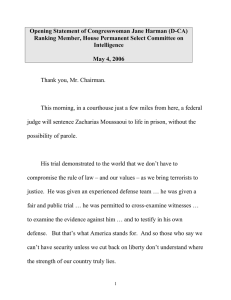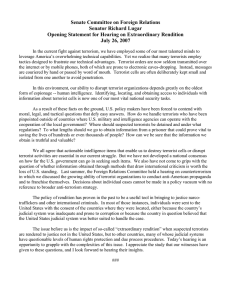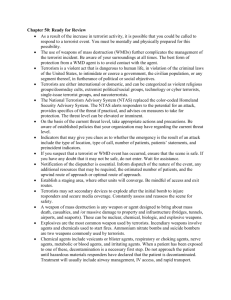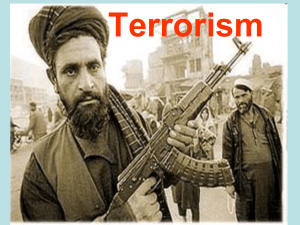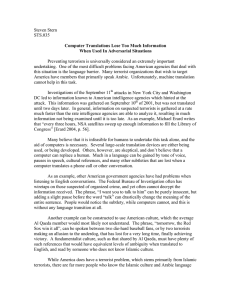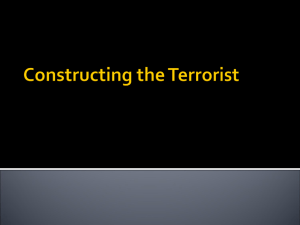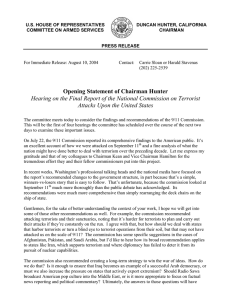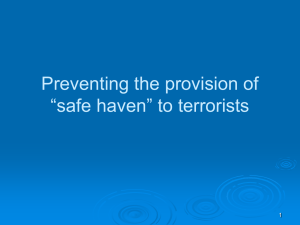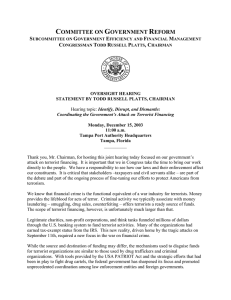U.S. HOUSE OF REPRESENTATIVES DUNCAN HUNTER, CALIFORNIA COMMITTEE ON ARMED SERVICES
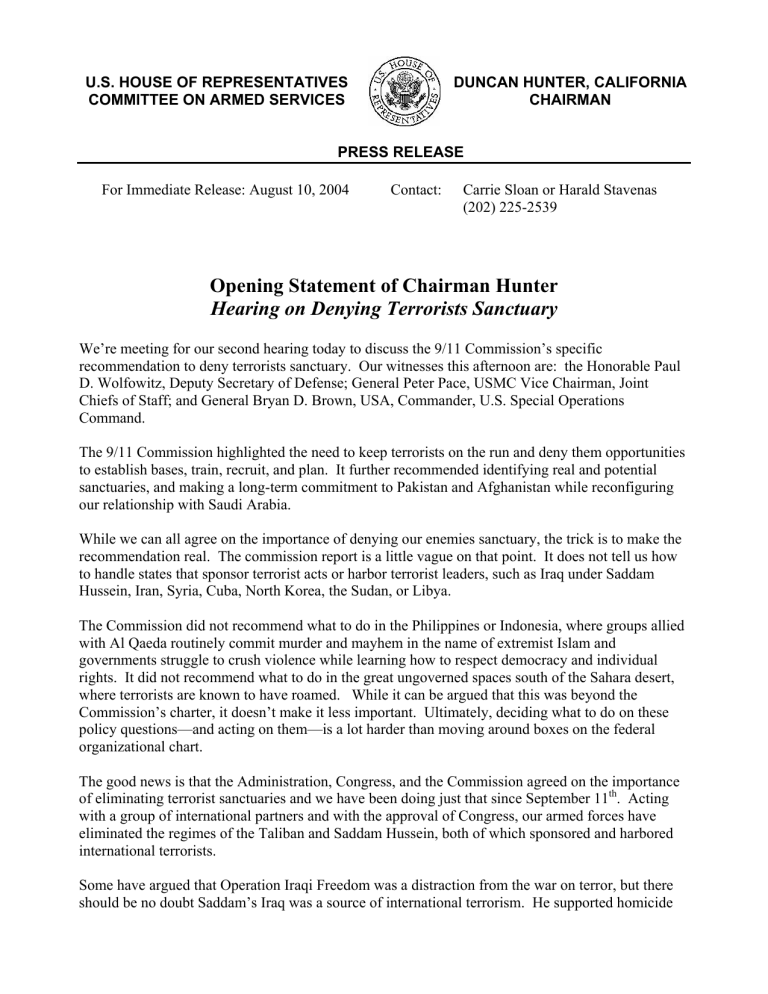
U.S. HOUSE OF REPRESENTATIVES
COMMITTEE ON ARMED SERVICES
DUNCAN HUNTER, CALIFORNIA
CHAIRMAN
PRESS RELEASE
For Immediate Release: August 10, 2004 Contact: Carrie Sloan or Harald Stavenas
(202) 225-2539
Opening Statement of Chairman Hunter
Hearing on Denying Terrorists Sanctuary
We’re meeting for our second hearing today to discuss the 9/11 Commission’s specific recommendation to deny terrorists sanctuary. Our witnesses this afternoon are: the Honorable Paul
D. Wolfowitz, Deputy Secretary of Defense; General Peter Pace, USMC Vice Chairman, Joint
Chiefs of Staff; and General Bryan D. Brown, USA, Commander, U.S. Special Operations
Command.
The 9/11 Commission highlighted the need to keep terrorists on the run and deny them opportunities to establish bases, train, recruit, and plan. It further recommended identifying real and potential sanctuaries, and making a long-term commitment to Pakistan and Afghanistan while reconfiguring our relationship with Saudi Arabia.
While we can all agree on the importance of denying our enemies sanctuary, the trick is to make the recommendation real. The commission report is a little vague on that point. It does not tell us how to handle states that sponsor terrorist acts or harbor terrorist leaders, such as Iraq under Saddam
Hussein, Iran, Syria, Cuba, North Korea, the Sudan, or Libya.
The Commission did not recommend what to do in the Philippines or Indonesia, where groups allied with Al Qaeda routinely commit murder and mayhem in the name of extremist Islam and governments struggle to crush violence while learning how to respect democracy and individual rights. It did not recommend what to do in the great ungoverned spaces south of the Sahara desert, where terrorists are known to have roamed. While it can be argued that this was beyond the
Commission’s charter, it doesn’t make it less important. Ultimately, deciding what to do on these policy questions—and acting on them—is a lot harder than moving around boxes on the federal organizational chart.
The good news is that the Administration, Congress, and the Commission agreed on the importance of eliminating terrorist sanctuaries and we have been doing just that since September 11 th
. Acting with a group of international partners and with the approval of Congress, our armed forces have eliminated the regimes of the Taliban and Saddam Hussein, both of which sponsored and harbored international terrorists.
Some have argued that Operation Iraqi Freedom was a distraction from the war on terror, but there should be no doubt Saddam’s Iraq was a source of international terrorism. He supported homicide
bombers financially, while harboring Abu Nidal, Abu Abbas and Abdul Rahman Yasin, who was implicated in the 1993 attack on the World Trade Center. In the 1990s, the Commission notes a series of high-level contacts between Iraq and Al Qaeda, including a possible Iraqi offer of safe harbor in 1999. Clearly, that safe harbor is gone and the Iraqi government is working with us today to prevent it from returning.
Through military training and assistance, the United States is also helping the Philippines and a group of African nations to bring the ungoverned space south of the Sahara under control, denying those areas to terrorists. In other words, the Administration is using the tools at its disposal to eliminate terrorist sanctuaries, from military assistance, to diplomacy, and—when diplomacy and sanctions fail—by using force.
The Commission raised important issues in its discussion of rewiring Congress and the Executive
Branch. The media has focused on that question and we’ll hear more on that score tomorrow. But, more important, the Commission made it clear that our strategy must change facts on the ground.
That is what today’s hearing is about. I look forward to hearing how our witnesses think we should continue to implement the commission’s recommendations on terrorist sanctuaries.
### http://armedservices.house.gov/
